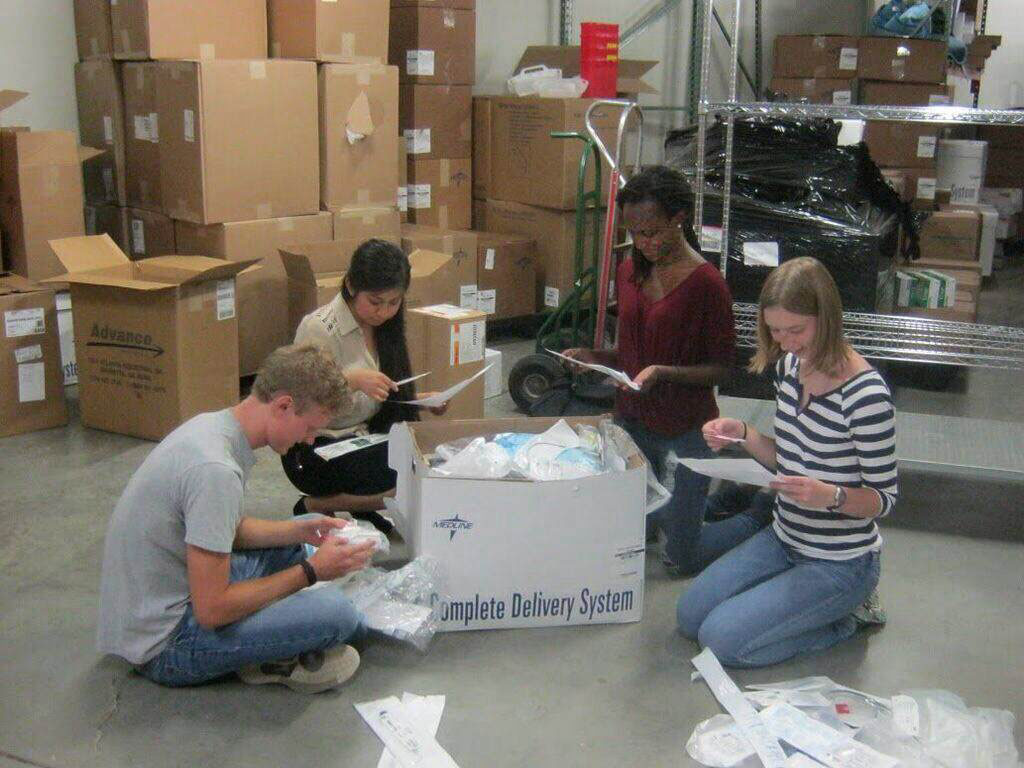Engineering World Health RSO Grows on U of A campus

Engineering World Health students collecting materials from Washington Regional Medical Center.
The U of A chapter of Engineering World Health is going above and beyond in terms of equipping students to use their biomedical engineering skills to improve health globally. This national organization seeks to teach biomedical students to design prototype devices with low resource settings, such as developing countries, in mind. Empowerment is also a key ideal of the organization, and teaching biomedical technicians around the world to fix their own devices is emphasized within the group.
Members of the U of A chapter of Engineering World Health are using their biomedical engineering skills to improve global health. Engineering World Health is a national organization that teaches biomedical students to design prototype devices with low resource settings in mind. The organization emphasizes empowerment, teaching bio technicians around the world to fix their own devices.
The Arkansas chapter has partnered with Advocates for World Health, a charity that locates excess materials from hospitals and distributes them based on needs around the world. "Hospitals often over order supplies, so we focus on collection and distribution of surplus materials," explains executive member Jake Hockman.
Through this project, U of A biomedical students learn the importance of combining aid with empowerment. The members recently got their first hands-on experience at Washington Regional Hospital, collecting supplies and preparing them for distribution around the world.
The U of A chapter was created in March 2015, and it is already experiencing rapid growth. Six executive members oversee the divisions of community outreach, fundraising, grant writing, public relations and conference planning. The chapter is in the process of writing grants to fund scholarships for the Engineering World Health Summer Institute — an institute that teaches language skills, as well as the skills to equip biomedical technicians abroad. The chapter is also looking into getting an Engineering World Health conference organized with the surrounding states.
If you are interested in learning more about or helping with the hospitals program, contact Jake at jthockma@uark.edu. For learning more about the organization as a whole or getting involved, email ewh@uark.edu.
Contacts
Maggie, communications assistant
College of Engineering
972-971-0612, maw033@uark.edu
Camilla Shumaker, director of communications
College of Engineering
479-575-5697, camillas@uark.edu